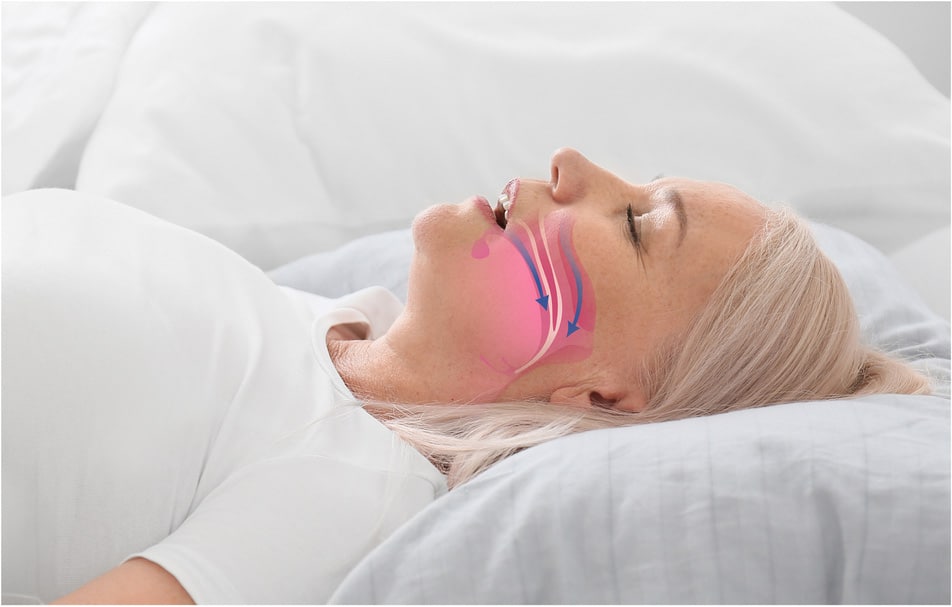Sleep Apnea in Raleigh, NC

Do you feel unrested even after a whole night’s sleep? You could be suffering from sleep apnea, a disorder that stops your breathing when asleep. If it’s something you’re not taking seriously, then you should know that it could lead to more serious problems. Learning all about sleep apnea and its treatments can help you manage the condition.
What is Sleep Apnea?
Sleep apnea is a condition in which breathing stops during sleep. Apnea means “restless” in Greek. If you are experiencing this, it could be a result of these three reasons:
- Obstructive Sleep Apnea (OSA) – The most common type of sleep apnea. It happens when your throat muscles relax and block your airway.
- Central Sleep Apnea (CSA) – This happens when your brain does not correctly send signals to the muscles for breathing.
- Complex Sleep Apnea – This type of sleep disorder happens when an OSA becomes CSA while you are receiving therapy.
The subsequent shortage of oxygen triggers a survival response that wakes you up just enough to start breathing again and keep you alive. However, this condition will keep you from getting a good night’s sleep and may have other negative effects, like stressing your heart.
Who is Prone to Sleep Apnea?
As we get older, we become more susceptible to sleep apnea. But the following people are more likely to have the condition:
- Those with excessive weight or obesity.
- People taking Opium pain medicines.
- People with heart conditions.
- Those who are living at places on high altitudes.
If you belong to any of these groups, below are the symptoms that can help determine if you have sleep apnea:
- Gasping for air when sleeping
- Loud snoring
- Morning headache
- Having a dry mouth when you wake up
- Insomnia or difficulty in sleeping
- Hypersomnia or excessive sleepiness during the daytime
Sleep Apnea Treatments
It is important to note that there is no cure for sleep apnea. However, there are numerous ways to treat it depending on the type of sleep apnea and its severity. All of them can help prevent apnea episodes or lessen their frequency or severity. These treatments include:
- Conservative treatments like weight loss, change in sleeping positions, sleep aid items, change in medications, and nasal sprays.
- Positive Airway Pressure (PAP), a method that utilizes a special device to increase the air pressure in your airways.
- Oral devices, like mouthguards, can keep your jaw and tongue in a good position to take away pressure from your windpipe.
- Nerve stimulators to help keep your tongue in a forward position while sleeping.
- Surgeries that can help remove blockages on the windpipe, nose, and throat.
Improve Your Sleep with Effective Treatment
If you think that what’s causing your sleep apnea has something to do with your jaw, teeth, or tongue, see a dentist at Six Forks Family Dentistry. We may be able to provide you with treatments for sleep apnea in Raleigh, NC.
Call us today or book an appointment to learn more about sleep apnea.